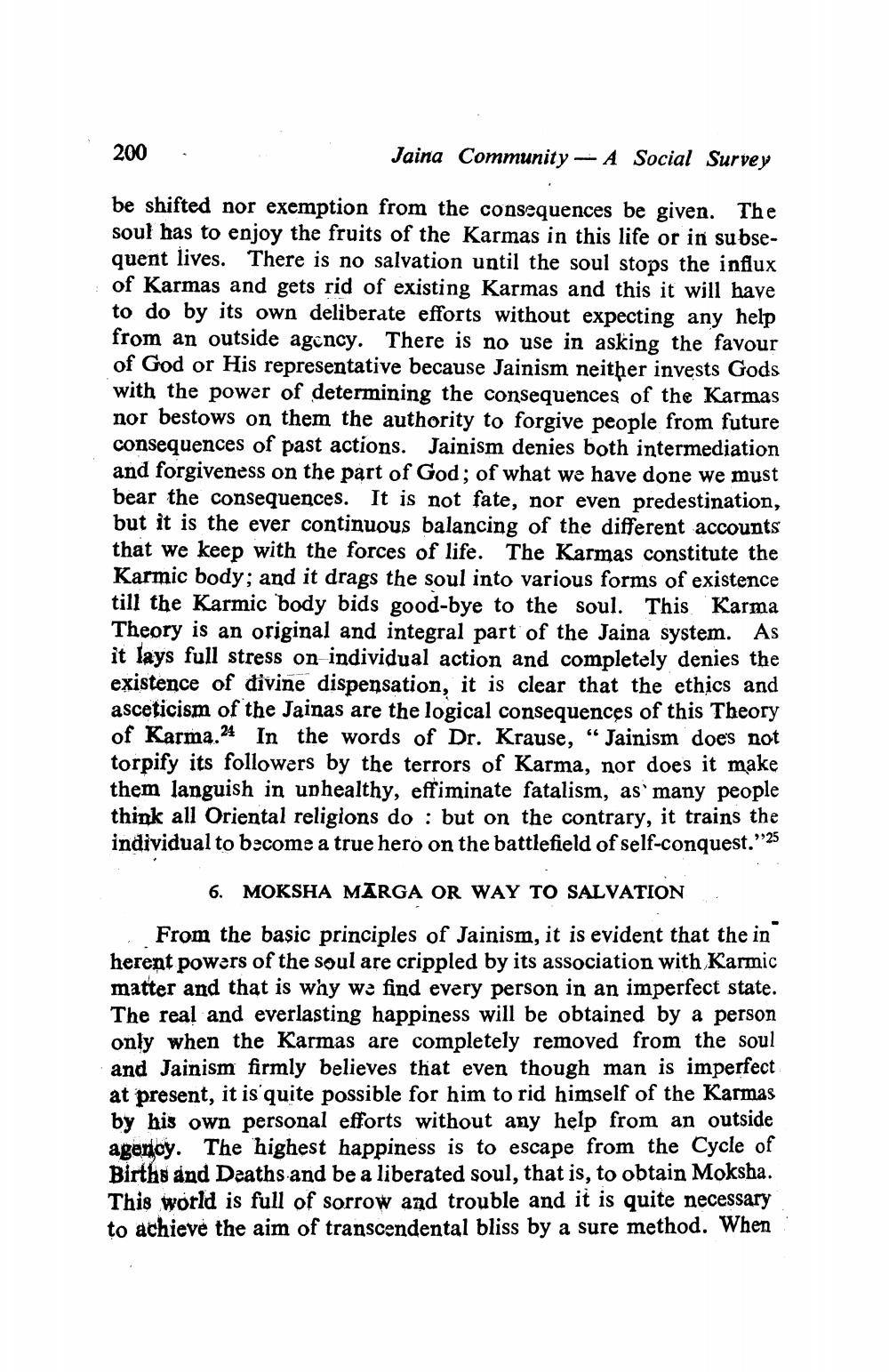________________
200
Jaina Community -- A Social Survey
be shifted nor exemption from the consequences be given. The soul has to enjoy the fruits of the Karmas in this life or in subsequent lives. There is no salvation until the soul stops the influx of Karmas and gets rid of existing Karmas and this it will have to do by its own deliberate efforts without expecting any help from an outside agency. There is no use in asking the favour of God or His representative because Jainism neither invests Gods with the power of determining the consequences of the Karmas nor bestows on them the authority to forgive people from future consequences of past actions. Jainism denies both intermediation and forgiveness on the part of God; of what we have done we must bear the consequences. It is not fate, nor even predestination, but it is the ever continuous balancing of the different accounts that we keep with the forces of life. The Karmas constitute the Karmic body; and it drags the soul into various forms of existence till the Karmic body bids good-bye to the soul. This Karma Theory is an original and integral part of the Jaina system. As it lays full stress on individual action and completely denies the existence of divine dispensation, it is clear that the ethics and asceticism of the Jainas are the logical consequences of this Theory of Karma.24 In the words of Dr. Krause, “ Jainism does not torpify its followers by the terrors of Karma, nor does it make them languish in unhealthy, effiminate fatalism, as' many people think all Oriental religions do : but on the contrary, it trains t individual to become a true hero on the battlefield of self-conquest.”25
6. MOKSHA MĀRGA OR WAY TO SALVATION From the basic principles of Jainism, it is evident that the in herent powers of the soul are crippled by its association with Karmic matter and that is why we find every person in an imperfect state The real and everlasting happiness will be obtained by a person only when the Karmas are completely removed from the soul and Jainism firmly believes that even though man is imperfect at present, it is quite possible for him to rid himself of the Karmas by his own personal efforts without any help from an outside agency. The highest happiness is to escape from the Cycle of Births and Deaths and be a liberated soul, that is, to obtain Moksha. This world is full of sorrow and trouble and it is quite necessary to achieve the aim of transcendental bliss by a sure method. When




